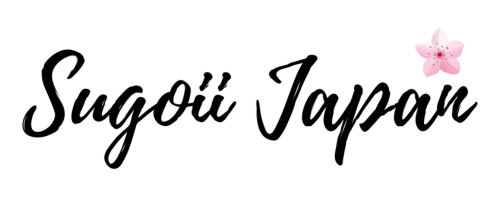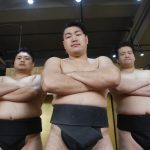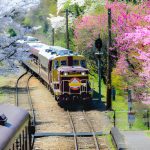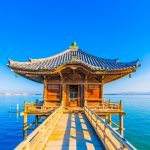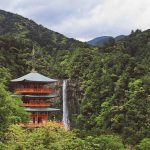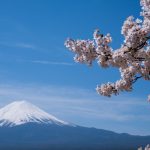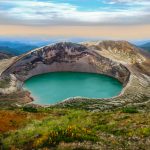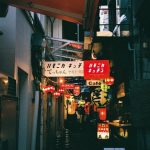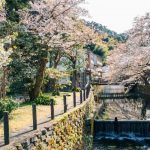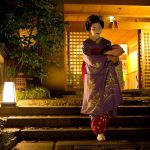Coronavirus (COVID-19) Japan – So, we’re sure that most travellers who are thinking about heading to Japan over the next few weeks or months are aware of the global disease outbreak that is COVID-19, aka Coronavirus according to the mass public.
We have received an influx of questions regarding the current climate and atmosphere in Japan, whether it’s still safe to travel to, measures are being put in place to control the spread of the disease, and various other questions which will assist people in making the decision as to whether or not they’d still like to travel to Japan.
In this article, we hope to relay useful information and tips for travelers who are planning to still come to Japan. We still believe that it is a safe country to visit and explore, provided that you take a few extra precautions during your travel. Whilst the numbers have slowly dwindled, people are still showing love to Japan and we’re so pleased about this.
However, we’d like to preface that we are not medical professionals so please do not rely solely on this article to make your decision if you are uncomfortable about what is happening in the world regarding COVID-19 right now. What we have done is garner information from various sources that we deemed reliable to put together this article regarding traveling to Japan through this rather tumultuous time for you to gauge a clearer understanding of what to expect.
Please read on for our carefully curated tips and updates on travelling to Japan right now.
What’s the Corona Virus and how it appeared?

For those who haven’t yet come across the news, COVID-19 is the newly identified coronavirus disease that emerged in China at the end of 2019. It is a respiratory illness, which means it affects how people breathe, and it can spread from person-to-person. It is believed to have been originated from a seafood market in Wuhan, the capital of the Hubei province in China.

Over the course of the following months after it first emerged until now, there have been many cases that have popped up all over the globe, Japan included. As of the time of writing, there have been a total of 1054 cases of people infected and 12 deaths in Japan.
If these figures seem gruesome, however, please remember that the population of Japan is actually made up of more than 120 million people, so it could be the case that the country is doing quite a relatively spectacular job of keeping the figures at a minimum.
Status of the Coronavirus (COVID-19) outbreak in Japan
Here are the latests statistics about the coronavirus (COVID-19) outbreak in Japan.



Source: https://covid19japan.com
Below are some global statistics that you might find useful or interesting to keep an eye on.
- No. of COVID-19 cases: 156,563
- Deaths: 5,836
- Recovered: 75,922
Source: https://www.worldometers.info
Mortality of the Coronavirus (COVID-19)

There’s good news and bad news about the Coronavirus (COVID-19). The bad news is that the COVID-19 is pretty contagious, specially comparing to the previous coronavirus SARS (also appeared in China). But the good news is that the mortality of this virus is pretty low. In fact, a majority of people who get the coronavirus (COVID-19) have few or no symptoms at all. Around 10-15% have significant symptoms and around 3% of the patients die on average.
It’s also important to note that deaths impact significantly the old people, specially if they have comorbidities (pre-existing medical conditions) such as cardiovascular disease, diabetes or chronic respiratory disease.
Another interesting fact is that the COVID-19 don’t (surprisingly) impact the youngest people.The mortality is around 0.2% for patients less than 39 years old.

Source: worldometers.info
Tips to visit Japan during Coronavirus (COVID-19) Outbreak
For those who are wondering, Japan is still happily accepting visitors and tourists from most countries. It’s a country full of life and excitement, and it means that whilst you still need to exercise extra caution, you’ll still have fun doing so. Below we’ve listed some tips that you can follow to make sure you’re traveling safe:
- Wear a face mask when you’re in public. Because the disease can be spread from person to person, this is a safe measure to ensure you’re filtering what you can from the air around you. It’s also a good way to avoid spreading the virus.

- Wash your hands frequently (ideally every hour) and thoroughly (for at least 20 seconds). If you can, use alcohol-based hand sanitiser if you can’t access soap and water. A lot of shops in Japan have sanitisers that you can use for free at the entrance.
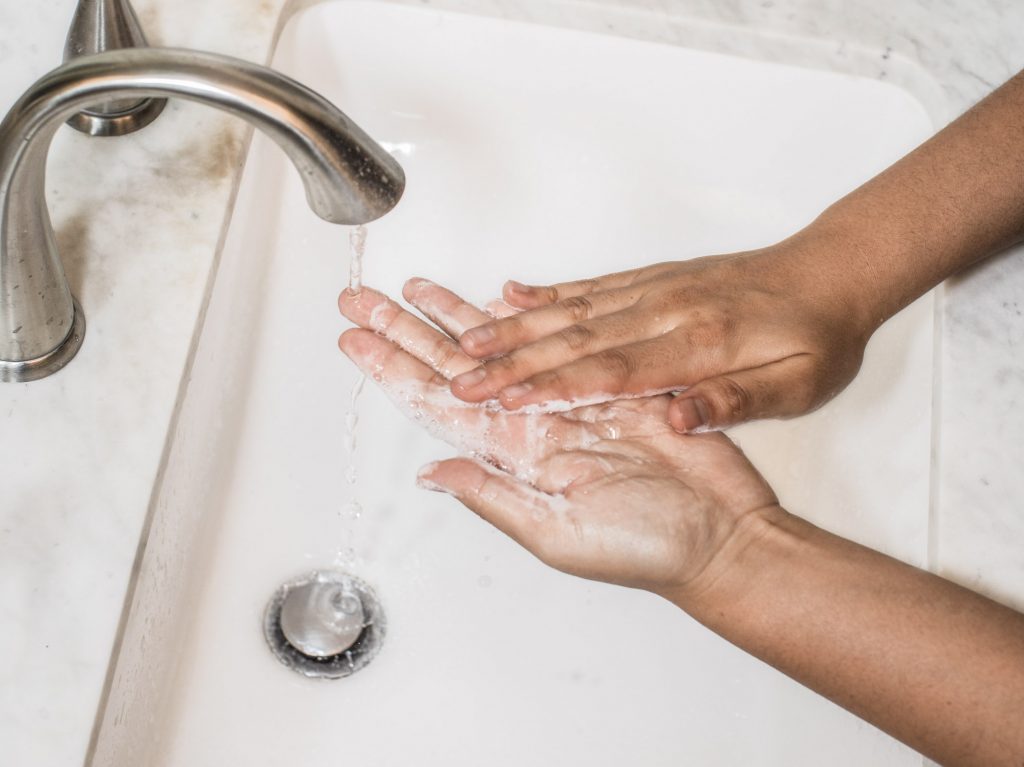
- If you need to cough or sneeze, use a tissue and then throw it away as soon as you can. Cough into your elbow if you don’t have a tissue.

- In general terms, try to avoid crowded areas and do your best to keep a safety distance of around 1 meter.
- Avoid touching your face with unwashed hands. People tend to subconsciously touch their eyes, nose and mouths, so just be more wary of this. Some officials tried hard to share this tip but then…
- Clean and disinfect surfaces around you or objects that people touch frequently if you can with wipes or sanitisers.
- Call the JNTO visitor hotline (available 24 hours) if you need assistance during this time. Service is available in English, Chinese, Korean, and Japanese. From within Japan: 050-3816-2787 / From overseas: +81-50-3816-2787
List of attractions closed due to the Coronavirus (COVID-19) in Japan
If you are traveling to the major tourist cities in Japan during this period, we would advise you to check to see if the activities on your itinerary will still be open, because unfortunately many major events and popular attractions have been either cancelled or temporarily closed to avoid possible further spreading of the disease. Some places that have announced this include Tokyo Skytree, Tokyo Disneyland and Disneysea as well as Universal Studios, and several of the popular museums including the Mori Art Museum, National Museum of Modern Art, and Kyoto National Museum.

You can get the full list of the closed attractions in Japan due to the Coronavirus (COVID-19) here: List of attractions closed due to the Coronavirus (COVID-19) in Japan. If that list is not up to date, you can also check out this article.
Don’t let this deter you from having a jam-packed itinerary though! What we do recommend is adding onto your itinerary places that you would have never thought about visiting. Keen for off-the-beaten-track destinations in Japan? What about trying all the most popular traditional Japanese dishes (some of which you may have never heard of)? Are gorgeous Japanese gardens right up your alley? Thought about exploring Narai Juku in Nagano prefecture but not sure what there is to do there?
Our website has got plenty of relevant information of places to visit and things to do in Japan. We encourage you to explore the articles as we guarantee that you’ll come across things you’ve never heard of that just might pique your interest.
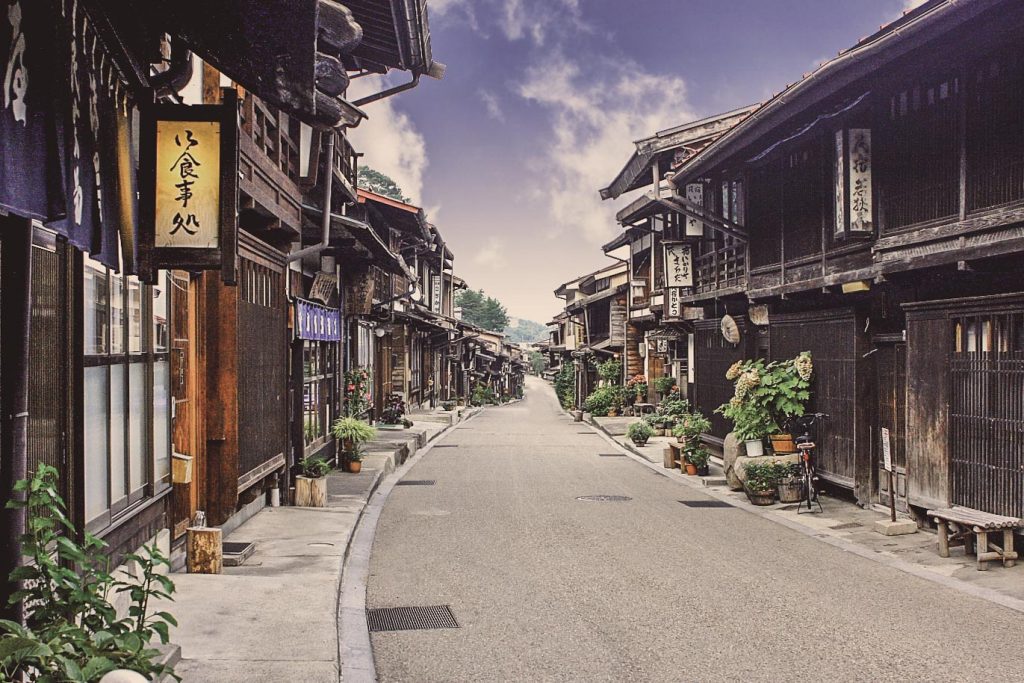
Please Note: You will be denied entry to Japan if you have been in certain parts of China, South Korea, or Iran in the past 14 days. As of March 9, until March 31, you will be required to spend 14 days in quarantine in a designated facility if you arrive from China, Hong Kong, Macau or South Korea. If you’re from these countries, we would recommend that you get into contact with your airline, tour operator, or nearest Japanese embassy to confirm the latest information.
Coronavirus (COVID-19) in Japan – Daily Updates

Get the latest news about the Coronavirus (COVID-19) in Japan every day in this section:
- Many major department stores, supermarkets, and convenience stores are in talks to reduce business hours or even shut their doors this weekend as the Tokyo Governor requests all residents stay inside their home this coming weekend to combat the sharp rise in coronavirus infections recently experienced (NHK)
- Due to the low number of tourists visiting Nara during this period, the adorable deer have started wandering outside of their usual park vicinity into town to begin looking for food (traveller.com.au)
- Tokyo Governer Yuriko Koike has requested that all residents refrain from going outside of their homes during this weekend as Tokyo experiences a sharp rise in number of coronavirus infections. She will be requesting the governers of Tokyo’s four neighbouring prefectures to cooperate in urging their own residents to avoid going out. On Tuesday this week, Tokyo overtook Hokkaido as the prefecture with the most infections (Kyodo News)
- Prime Minister Shinzo Abe has announced that Japan is postponing the Tokyo Olympic and Paralympic Games until next summer, in 2021 (The Japan Times)
- An expert in infection control says that Japan may have to consider locking down some of its larger cities if the coronavirus cases surge around the country, as infections continue to gradually rise (NHK)
- The International Olympic Committee has begun discussions as to whether postponement of the Olympic Games is inevitable. An assessment will be made over the following weeks (Kyodo News)
- The Japan Top League of Rugby has decided to cancell all of its games for the remainder of the season due to the Coronavirus. Since 42 matches will be cancelled, there will be no official league standings this year (Kyodo News)
- US visitors coming to Japan will be required to self-quarantine for two weeks after they land in the country. This would involve self-quarantining in their hotels or accommodation and avoiding any use of public transport. This will be in effect from Thursday 26th March until the end of April (Kyodo News)
- The number of foreign visitors to Japan has plunged a massive 58.3% in February, the largest on-year drop for any month in almost nine years since April 2011 when the figure fell to 62.5% after a devastating earthquke and tsunami hit northeastern Japan (Kyodo News)
- The Olympic flame has officially arrived in Japan from Greece. A welcome ceremony was held on Friday at the Japanese Air Self-Defense Force’s Matsushima Base in Miyagi Prefecture. The Olympic torch relay will start from the J-Village soccer training facility in Fukushima Prefecture on March 26 (NHK)
- The aforementioned outbreak from Osaka indoor music clubs appears to be over. Coronavirus infections through the live music venues in Osaka have gone for a week without any new cases reported (Kyodo News)
- Osaka Government Hirofumi Yoshimura has requested that non-essential travel between the western Japanese prefectures of Osaka and Hyogo should be avoided during the upcoming 3-day weekend. The request is based on emergency steps proposed by state health experts to prevent the pneumonia-causing virus from spreading further (Kyodo News)
- Amid the global health crisis happening around the world, the tourism industry is taking a hit; thus, certain accommodations in Japan are taking on unconventional methods to try and attract guests. For example, Homeikan, an operator of traditional Japanese-style inns in the Hongo district of Tokyo, became an instant senstation with an option for guests to live and feel like great authors of past Japanese times. For around 8,000 yen a night, guests can do their work, or simply live alone, whilst hotel staff, behaving like publishing house editors, come and check on how they are doing. The guests are not permitted to leave the inn unless an emergency occurs. Bookings were sold out within hours when released in March, but hopefully there will be more openings in April (Japan Times)
- Japan plans to expand its quarantine measures on Saturday, to include people entering the country from most of Europe, Iran, and Egypt. The government will be asking that foreign and Japanese nationals isolate themselves for two weeks in places like homes and hotels, and to refrain from using public transport (NHK)
- Japan’s northernmost main island of Hokkaido will lift its state of emergency ban on Thursday. However, Hokkaido will still request that people avoid going to high-risk places (Kyodo News)
- National museums in Tokyo, Osaka, Kyoto, Nara and Fukuoka – Closed until further notice
- Tokyo Disneyland and DisneySea – closed through early April
- Universal Studios Japan – closed through March 22
- Legoland Japan – closed through March 22
- Sanrio Puroland – closed through March 20
- Ghibli Museum – closed through April 28
- Snoopy Museum Tokyo – closed through March 22
- Hiroshima Peace Memorial Museum – closed through March 19
- Tokyo Skytree – closed until further notice
- Roppongi Hills (Mori Art Museum, Tokyo City View, Mori Arts Centre Gallery) – closed through March 19
- Tokyo Sea Life Park – closed through March 31
- Shinagawa Aquarium – closed through March 31
- Osaka Aquarium Kaiyukan – closed through March 22
- Professional baseball season postponed until April
- Football (including J1 and J2) postponed until further notice
- A virology professor at Tohoku University has found 15 clusters of people infected with COVID-19. Of all the clusters, the only group that includes 50 or more people infected is in Osaka (where the infection is believed to have spread through live music clubs). Otherwise, clusters of 10-49 people are found in 10 locations oncluding Hokkaido, Tokyo, and Achi Prefecture. Small clusters of five to nine people were found in four locations, incuding Chiba prefecture. (Kyodo News)
- Japan has confirmed an additional 31 new cases of the COVID-19 infection. The northernmost prefecture of Hokkaido has the most cases at 148, followed by Aichi with 121, Osaka with 106, Tokyo with 90, Hyogo with 78, and Kanagawa with 55. (NHK)
- Japan experiences a record daily new number of COVID-19 cases, seeing 63 new cases as of March 15. (NHK)
- A 44-year old man pretended to have contracted coronavirus and threatened to thread it at JR Kisuki Station in the city of Unnan. He was subsequently arrested. (Japan Times)
- Prime Minister Shinzo Abe confirms that the Tokyo Olympics 2020 will go ahead as planned. (BBC)
- The Nozomi Shinkansen will be suspended over the coronavirus fears. Later this month (March), services will be reduced due to a plunge in numbers of passengers amid the coronavirus. (Japan Times)
- All Nippon Airways Co. and Japan Airlines Co. will continue to cancel more domestic flights amidst the coronavirus outbreak. (Japan Times)
March 12
- The Spring Koshien, a national invitation baseball tournament that is held annually at Koshien Stadium in Nishinomiya, Hyogo Prefecture. Koshien is known as the mecca of Japanese baseball, and competing there in one of the two big tournaments (one being the Spring Koshien) is a common dream among young boys playing baseball. (Japan Times)
- Tokyo Disneyland and Tokyo Disneysea have extended their closure dates until early April. Universal Studios Osaka will remain closed through March 22. (Kyodo News)
- “Anastasia: The New Musical” has cancelled its shows in Tokyo from March 1st until March 8th (9 shows in total). (theatre-orb)
- Sanrio Puroland in Tama City, Tokyo, and Harmonyland in Oita Prefecture have extended their closure period from March 15th to March 20th. (NHK)
March 11
- SilkAir, a regional wing of Singapore Airlines, has suspended operations to Hiroshima from March 27.
- In the city of Kawasaki at the variety store called Epilyri, you can purchase small badges that indicate that you have hay fever or asthma or similar conditions, possibly easing those around you. (Japan Times)
- It’s been noted that live music venues have been found to be transmission sites for the coronavirus disease as a handful of small music clubs in Osaka have emerged to have hosted a few of those who were infected. (Japan Today)
March 10
- A man in his 80s from Sagamihara, Kanagawa Prefecture who contracted the coronavirus disease has died at a hospital in the city. (NHK News)
- Prime Minister Shinzo Abe has requested for big sports and cultural events to be cancelled or postponed, so if you’re looking to participate in some hanami festivities, make sure you look into it first to see if the event is still going ahead. (Kyodo News)
March 9
- Foreign nationals arriving in Japan from mainland China, Hong Kong, Macao, and Republic of Korea will be required to stay at designated facilities for 14 days. They will be advised to not use public transport during these times. (Kyodo News)
- Ship transportation of passengers from China and Republic of Korea have been suspended. (JNTO)
- Airline arrivals from China and Republic of Korea are being limited to Tokyo Narita (NRT) and Osaka Kansai (KIX) (JNTO)
- Nippon Professional Baseball has decided to postpone the start of its regular season, so if catching an epic local baseball game was on your to-do list, please take this into account. (Japan Times)
March 8
- The Spring Grand Sumo Tournament was held behind closed doors for the first time in history. (Asahi)
To conclude this article, we really hope that the information provided to you has been helpful and that you’ve got enough to make some sound decisions about traveling to Japan. Whilst we understand that it’s very easy to get caught up in the hysteria that is the media right now, just remember that what you read might not even be honest and true news, so make sure you are getting your information from reliable sources. In fact, there have been many false rumours circulating through Japan about preventative measures such as drinking hot water that might reduce your chances of being infected, but this has been debunked!
If you’re still considering visiting Japan, re-read our tips on how to travel, keep up to date about what’s happening with all the major attractions and events, and generally take care of yourself just a little more whilst exploring this beautiful country. You’ll find that the media has probably hyped up the hysteria just a little bit more than what is actually happening, and that you’ll most likely have a wonderful time regardless of the frenzy going on right now.
Website Sources
- Centres for Disease Control and Prevention: https://www.cdc.gov
- John Hopkins Medicine: https://www.hopkinsmedicine.org
- CNN: https://edition.cnn.com
- Japan Times: https://www.japantimes.co.jp
- Covid19 Japan: https://covid19japan.com
- Japan National Travel Organisation: https://www.japan.travel
- NHK World – Japan: https://www3.nhk.or.jp
- Smart Traveller Australia: https://www.smartraveller.gov.au
- Worldometers: https://www.worldometers.info
